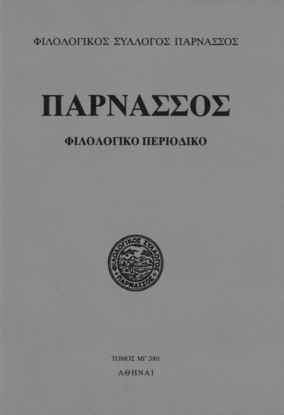Πολιτικές απόψεις στην Ουτοπία του Thomas More και στους λόγους Περί βασιλείας και περί πολιτείας του Θωμά Μάγιστρου : ομοιότητες και αντιθέσεις
Part of : Παρνασσός ; Vol.ΜΔ, No.1, 2002, pages 317-338
Issue:
Pages:
317-338
Parallel Title:
Political views in Thomas More’s Utopia and in the treatises of Thomas Magistros, On Royalty and On the Republic : similarities and differences
Author:
Abstract:
The author investigates possible points of influence of Italian Humanism on Thomas More, analyzing the political views of the latter in connection with similar opinions expressed by Byzantine scholar Thomas Magistros, who is known to have influenced Italian humanists. Both thinkers believe that the good ruler must also be a philosopher, that all citizens must be willing to comply with law, not by means of coercion but via the appropriate education, that justice and virtue must be the ruler’s main objectives. They also point out that everyone must cooperate for the common good and that all subjects must be treated as equal and must have equal obligation s (although More, contrarily to Magistros, considers that military service should not be obligatory and favors the creation of mercenaries ’ armies). These ideas, that stem to a great extent from Plato ’s Republic, are in both cases expressed amidst political turmoil and social unrest, which also explains the similarities between the two writers.
Subject:
Subject (LC):




